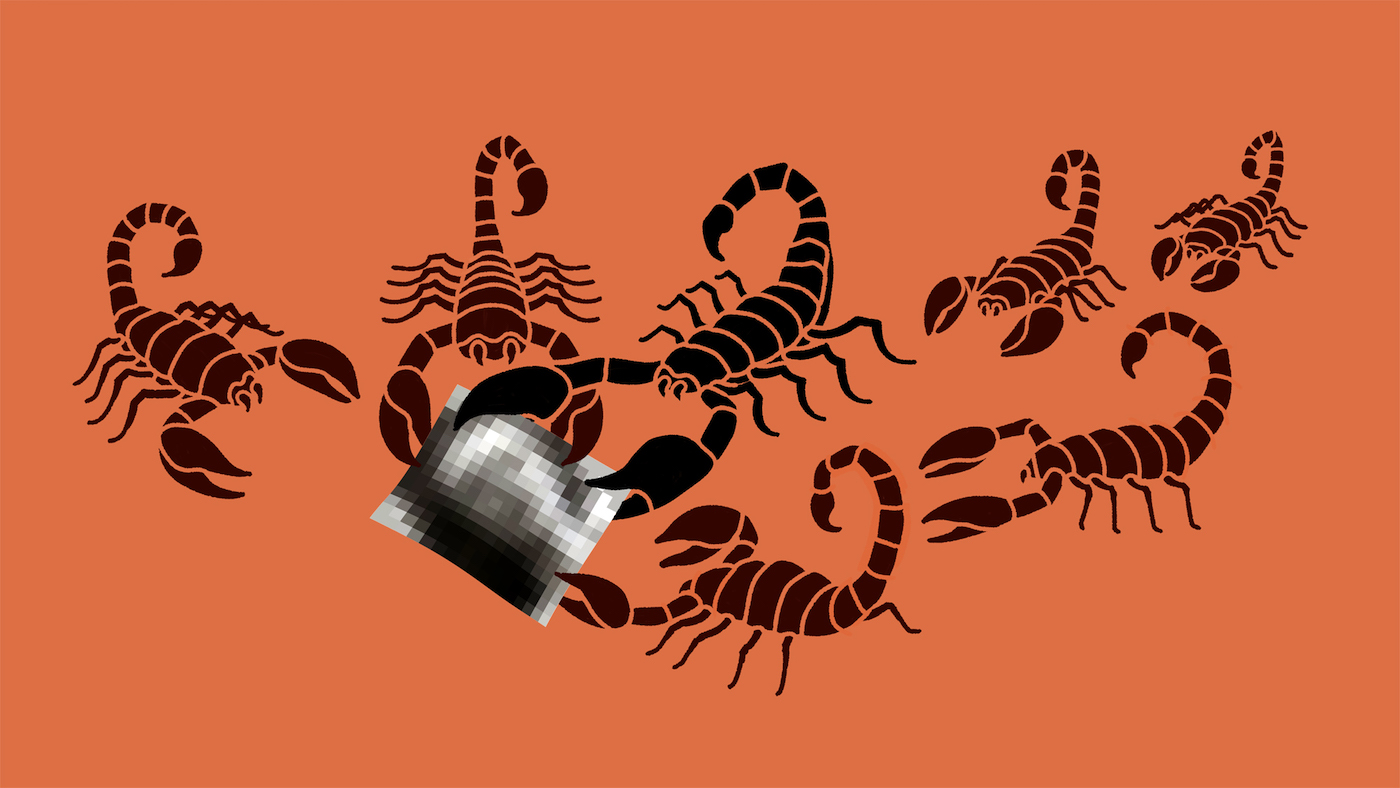From January 2020 to May 2021, the PNP also recorded 625 voyeurism cases coming from various Anti-cybercrime police units in the country. While they could not tell how many of the victims were underage, police typically filed charges under the following laws: Republic Act (RA) No. 9775 (Anti-Child Pornography Act), RA 9995 (Anti-Photo and Video Voyeurism Act of 2009), RA 9262 (Violence Against Women and their Children Act) in relation to RA 10175 (Cybercrime Prevention Act), and RA 7610 (Special Protection of Children Against Child Abuse, Exploitation and Discrimination Act).
The desks of the ACG’s Women and Children Cybercrime Protection Unit (WCCPU) nationwide receive complaints daily, but most of the victims only seek help in taking down their videos.
“When I was still working in Calabarzon, there was a kid weeping in our office every day asking for help,” said Police Maj. Joseph Villaran, the spokesman of the ACG when he was interviewed by the PCIJ in November 2020. He now teaches cybercrime investigation and cyber forensics at the PNP Academy.
Maj. Lalaine Marty, an inspector for the WCCPU, said investigators also handle four or more reports daily. “Especially during this time we’re in a pandemic, children and teens are forced to stay online for long hours to kill time,” she said.
It is not clear why Grace’s ex-boyfriend released her images. Villaran said perpetrators had different motives for releasing these videos and various schemes to accomplish their goals.
Predators might want to use the materials as a means to control their victims, he said. Revenge was also common.
There were instances when these images and videos were used to extort or swindle the minors.
Some perpetrators created fake accounts and pretended to be kids or women. They looked for unsuspecting young internet users, initiated conversations with them, and upon securing their victims’ confidence, proceeded to solicit their naked images.
“There were also recurring instances where the perpetrator pretended to own a production or modelling company… [and later] asked the victims for money in exchange for not uploading the content,” Villaran said.
Repeated abuse
The sexual abuse is repeated each time the photos and videos are downloaded on the Internet.
Grace received messages from many strangers. Some continued to harass long after her videos were first uploaded.
“After a month or two, another dummy account would message me trying to blackmail me. They would send me my pictures from before and tell me in Filipino: Does your mom know about this?’ Or say how nice my body looked even as a minor and how my body would look way nicer now as an adult,” she said.
It took time but Grace and her friends eventually succeeded in getting Facebook, Twitter, Google Drive and other websites to take down the materials. Still, she lived in constant fear that the images and videos were still out there and might be uploaded again.
“I would like to think that they’re not online anymore, but deep down I know they are,” she said. “These materials, no matter how hard you try to take them down, will always be re-uploaded, because that’s just how it works nowadays.”
She’s right, according to authorities.
Marty said even if social networking platforms did take down these abusive materials, there were so many ways they might be copied or uploaded again. Phones can screen-record video, for example.
These photos and videos might have also been uploaded to other platforms such as messaging apps, online forums, websites, media storage drives and pornsites. These platforms increase the number of consumers exponentially and make erasing the images very difficult.
The abuse won’t end so long as there are people who download or reupload them – abetted by an ugly internet culture where users share images and videos of young girls among themselves.
RA 9995 also punishes the reproduction, sale, and distribution of such materials. The penalty is imprisonment from three years to seven years, and a fine of P100,000 (US$2,079) to P500,000 (US$10,399).
But the identity of the distributors and their patrons are almost always anonymous, even if the materials are not difficult to find on the internet.
PCIJ found a Reddit thread with Filipino users who circulated a link to a media storage drive. It had 351 folders of explicit materials of girls from a country in the Asia-Pacific.
The folders contained the girls’ full names and screenshots of their Facebook profiles, as if to prove the legitimacy of the content. Dozens of them appeared to be minors.
Reddit is among a number of platforms that are barely monitored. The internet user who created the Reddit thread appeared to be a regular source of these materials. The thread was titled: “Ninong is back!” Ninong is a Filipino word for godfather.
“Thank you for the multitude of blessings, godfather. May you be blessed everyday),” one appreciative user commented in the thread.
The thread and the drive were taken down days after the PCIJ brought it to the attention of the ACG.
Encryptions and VPNs
The moderators of online communities distributing child sexual abuse materials in the Philippines are not tech-savvy, according to Villaran. But the platforms they are using have given them an advantage — even against law enforcers who are equipped with the hardware and software to track their crimes.
The encryption services of platforms such as Telegram, WhatsApp, and Viber among others have made the job of law enforcement agencies difficult, for one. The perpetrators have found protection in their services.
PCIJ also found suspicious posts similar to the Reddit thread in these platforms, but access was restricted.
Like many online businesses, “PM is the key” to access these materials.
“They create groups on Facebook and they make use of a ‘suggestive’ photo that cannot be tagged as child exploitation content. [It] may be a photo of a kid — nothing sexual –– but when you read the conversations in the group’s feed during an investigation you [would] see phrases like ‘send me that’ or whatnot,” Department of Justice state counsel Angela de Gracia explained.
PMs or private messages on Facebook Messenger are not end-to-end encrypted, me aning moderators can detect sexual and child abuse imagery and report it. To go around this, the perpetrators only tease the materials on Facebook. The PMs are sent through encrypted platforms.
aning moderators can detect sexual and child abuse imagery and report it. To go around this, the perpetrators only tease the materials on Facebook. The PMs are sent through encrypted platforms.
In 2016, however, Facebook Messenger also started an end-to-end encryption service through its “Secret Conversations.”
“The technology can provide the purpose of convenience for using the platform to many but can be exploited by sinister people hiding in the cloak of security,” said information systems professor Joseph De Guia.
“We cannot snoop or listen to all of these social media platforms since they are being guarded by the cloak of encryption,” he said.
Unless a person included in the conversation leaked the details to authorities, the exchange of content would be undetectable.
Looking for site moderators is also tricky because of anonymization technologies such as VPN or virtual private networks. This technology can hide a user’s internet protocol (IP) address, location, and browser history.
VPN has become more accessible. The service may be obtained for P650 for a month.
Message encryption and VPNs, among other technologies, are big stumbling blocks to law enforcement authorities and government prosecutors.
The ACG said it had requested the PNP leadership for extra funding for the procurement of a P38-million software that could help detect crimes such as child exploitation on social media.
But even with technology, the task of ending the cycle of uploads is immense work.
The ACG has 149 specially trained police officers who can do “cyber patrols” or the online equivalent of foot or mobile patrolling for beat cops. These trained officers are tasked to sweep social networking and other websites for activities like sex crimes against minors.
Online sexual exploitation is just one of many online crimes these officers are handling. They also deal with cyberattacks, cybersquatting, cybersex, identity theft, illegal access to data, cyberlibel and online scams that came with the surge in online transactions amid the pandemic.
The cost of training one police officer alone is hefty as schooling for anti-cybercrime law enforcement is largely offered abroad. “Sometimes the [police leadership] notices our needs but it’s just that we’re not the priority. We’re just among several support units,” Villaran added.
Moving on amid fears
Online purveyors continuously evolve their operations to avoid detection, according to a monitoring report by the DOJ’s Office of Cybercrime in the third quarter of 2020.
They exchange tips and strategies in dark web forums to keep themselves protected. Groups would change the names of their websites or social media accounts every week or every month to confuse probers looking for them.
Infiltrating these platforms to track down and entrap perpetrators is as hard as setting up a drug sting, said Villaran.
Law enforcers have turned to intricate methods, such as going undercover using accounts that have been groomed for years for such purposes.
There have been many successes. Data provided to the PCIJ by the National Telecommunications Commission showed that “more or less 4,000” web links had been taken down as of 2020.
Their operations do not always end when the sites or the groups are taken down, however. Villaran said perpetrators usually kept the materials stored in media storages, which they could upload again to a different platform or website.
“Proliferating the links to the underground network of pedophiles is no hard task,” Villaran said. “They just pay a web designer.”
Meanwhile, victims like Grace live in constant fear of being recognized from the videos and photos. She cut her hair and stopped dressing comfortably to avoid being slut-shamed.
Now in college, she avoids standing out in crowds and on campus because of the discrimination she faced from her teachers in high school.
“I also fear that this might affect me when I need to look for a job once I graduate. The constant fear of me being discriminated against because of my past still lingers at the back of my head. I don’t want my job to be affected by this,” she said.
Grace has picked herself up from the years she spiralled into depression and self-harm. She was able to mend her relationship with her family and friends. She was also able to trust a new man, who she said treats her with respect and affection despite knowing about her past.
She’s worried about young girls these days, however. She doesn’t believe that the country’s safety nets against child pornography and sexual abuse have improved since it happened to her.
“I have accepted that I will never get justice for what has happened to me. I [have] embraced what had happened to me, and I open up about it when someone asks me to because I know that I am not in the wrong. I know that I am a victim.” ●
*Grace’s name was changed to protect her privacy.
*Neil Jayson Servallos, an M.A. Journalism student at the UST Graduate School, originally wrote this story for one of his reporting classes. It was expanded into a series with the editorial guidance of the PCIJ.
*Illustration by Alexandra Paredes












 aning moderators can detect sexual and child abuse imagery and report it. To go around this, the perpetrators only tease the materials on Facebook. The PMs are sent through encrypted platforms.
aning moderators can detect sexual and child abuse imagery and report it. To go around this, the perpetrators only tease the materials on Facebook. The PMs are sent through encrypted platforms.







